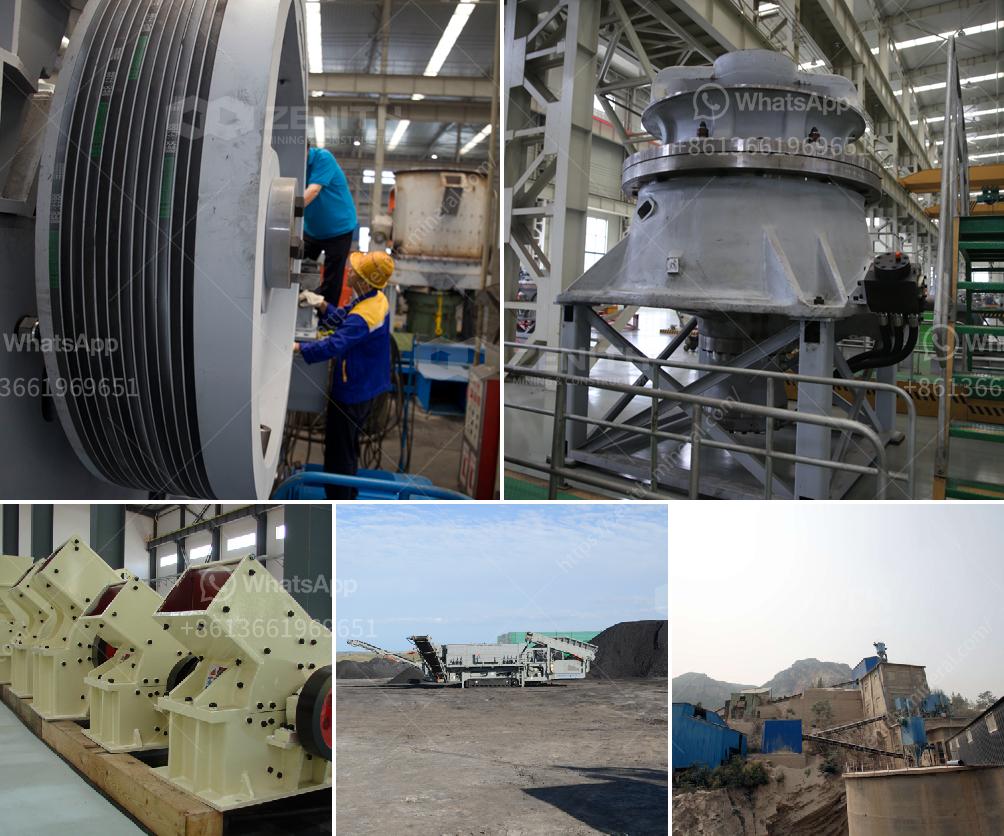Choosing the right mobile rock crusher machine involves several considerations to ensure that the equipment meets your specific needs and requirements. Here are the key factors to consider in great detail:
1. Type of Rock Crusher
There are several types of rock crushers, each suited for different types of materials and applications:
- Jaw Crushers: Ideal for primary crushing of large rocks. They use compressive force to break down materials.
- Impact Crushers: Suitable for secondary crushing. They use impact force to crush materials and are good for softer rocks.
- Cone Crushers: Used for secondary or tertiary crushing. They crush materials by squeezing them between a gyrating spindle and a concave hopper.
- Hammer Crushers: Use high-speed rotary hammers to impact and break down materials. Suitable for softer materials.
2. Mobility and Portability
- Tracked Crushers: These are mounted on tracks and can move around a site easily. They are ideal for projects where the crusher needs to be moved frequently.
- Wheeled Crushers: Mounted on wheels, these are easier to transport over longer distances but may require more setup time on-site.
3. Capacity and Output
- Throughput: Consider the amount of material the crusher can process per hour. This is usually measured in tons per hour (TPH).
- Output Size: Determine the desired size of the crushed material. Different crushers offer various settings to adjust the output size.
4. Material Characteristics
- Hardness: The hardness of the material to be crushed will influence the type of crusher you need. Harder materials require more robust and durable crushers.
- Moisture Content: High moisture content can cause clogging and reduce efficiency. Some crushers are better suited for wet materials.
5. Power Source
- Diesel-Powered: Offers mobility and is ideal for remote locations without access to electricity.
- Electric-Powered: More efficient and environmentally friendly but requires access to a power source.
6. Ease of Maintenance
- Accessibility: Ensure that the crusher design allows for easy access to wear parts and components for maintenance.
- Spare Parts Availability: Check the availability of spare parts and the ease of replacing them.
7. Cost and Budget
- Initial Cost: Consider the purchase price of the crusher.
- Operating Costs: Factor in fuel, maintenance, and repair costs.
- Return on Investment (ROI): Evaluate how quickly the crusher will pay for itself through increased productivity and efficiency.
8. Manufacturer and Support
- Reputation: Choose a reputable manufacturer known for quality and reliability.
- After-Sales Support: Ensure that the manufacturer offers good after-sales support, including training, maintenance, and repair services.
9. Environmental Considerations
- Emissions: Check if the crusher meets local environmental regulations regarding emissions.
- Noise Levels: Consider the noise levels produced by the crusher, especially if operating in residential areas.
10. Additional Features
- Automation: Some modern crushers come with automated features for easier operation and monitoring.
- Safety Features: Look for crushers with built-in safety features to protect operators and reduce the risk of accidents.
By carefully considering these factors, you can choose a mobile rock crusher machine that best suits your specific needs and ensures efficient and effective operation.

